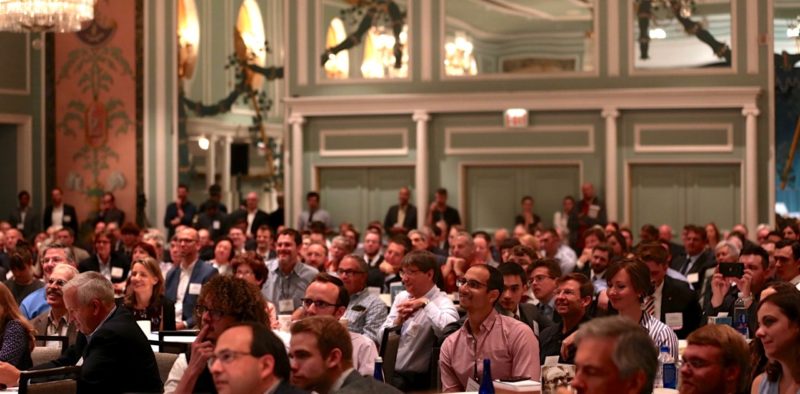We Are the True Liberals

The meaning of ideological terms changes with times, often with no logical or historical justification. The most egregious example of this is the sad fate of liberalism as an ideological designator.
In the 19th century it was used to describe the people who believed in liberty, understood in the individualistic sense of British and French economists and political philosophers such as Adam Smith, John Locke, Jean Baptiste Say, and David Hume. It was a creed unifying the belief in free markets with the beliefs in freedom of speech and the press.
After the New Deal, American socialists and social-democrats took over this name to describe their own ideology of government interventionism. For quite a few decades we have had in America a strange situation where the true liberals are called conservatives and true socialists are called liberals.
It is high time for this to end, especially when it comes to libertarian-leaning conservatives and libertarians.
We should embrace again the good-old honorable name: liberals. We believe in individual liberty, in free markets, in international free trade, and in peaceful cooperation of people across national borders. We have no reasons to stick anymore with this ugly, artificial, and socialist-inspired term libertarian, which originally meant socialist libertine.
We should go back to the old heritage of Tocqueville and Burkhardt, Adam Smith and John Locke, Croce and Acton, and Mises and Hayek, to the name they used for themselves. We need to conceptually and historically clarify our ideological lineage, what we stand for and why. Re-embracing the old, beautiful name liberalism is in itself an important part of this task.
Aiding this change is the abandonment of the term by leftists themselves, who now prefer to call themselves progressives (with much more historical justification). So, the term liberal in the American political discourse became somewhat of an orphan, largely reduced to the status of derogatory slur that right-wing talk show hosts and media personalities throw at leftists, angry and terrified to be called such.
The second reason is deeper: we, liberty lovers, are a minority in any society — have always been and always will be. Liberty emerged and persisted in the Western world not because majorities wanted it, but because its enemies were not always operating in synergy and synchronicity. As Lord Acton put it, “At all times sincere friends of freedom have been rare, and its triumphs have been due to minorities, that have prevailed by associating themselves with auxiliaries whose objects often differed from their own; and this association, which is always dangerous, has sometimes been disastrous, by giving to opponents just grounds of opposition.”
We are now at that point.
A long-lasting strategy of all liberty-loving people in the United States has been to ally with religious conservatives. That was the essence of a famous fusionism, concocted by Bill Buckley of the National Review and his allies in the 1950s. That project is falling apart before our eyes with the election of Donald Trump and the gradual transformation of the Republican Party from a mildly and inconsistently liberal (in the classical sense) party to a European-style populist/nativist movement that does not want so much to roll back the state as to use it for “nationalist” purposes. If we persist in the alliance with this new movement, we indeed run a risk of giving the “just grounds” to the left to dismiss us as just enablers of right-wing authoritarianism.
It is all too natural for people of ideas to believe that they are on the right side of history. We are no exception. Yet, we have to recognize that in current environment we may not be, that history seems to be moving in the direction of political authoritarianism, of state-regimentation and control, on the left as well as on the right. On the right we have a transfiguration of American conservatism into a nationalist creed, a form of right-wing Hegelianism, as Jeffrey Tucker has written, while on the left we have a contest between the Mensheviks (party elites) and Bolsheviks (young people and intellectuals) and Bolsheviks seem to be winning.
If we are not to be swallowed by this two-headed monster of statism and authoritarianism we have to step out of the circle and disabuse ourselves of the notion that we can “convert” in the short run either the hordes of Bernie brothers who want Chávez-style socialism in America, or Southern evangelicals or Bannonites who love Julius Evola and Vladimir Putin and believe in blood and soil. We have to sharpen our ideological profile by recovering not only our old liberal heritage, but also the proper name for it, and to establish ourselves as a third party (in the ideological not organization sense) of American politics — and to understand and accept, as Lord Acton did, that we are a small minority that all the time runs the risk of association with unworthy allies.
But our additional task is also not to water down our ideology in order to conform it to the prejudices or any one group that we would like to win over (be it on the left or right). We need instead to emphasize the differences, economic and moral, between liberty and serfdom (in its leftist or rightist forms), unapologetically and courageously. And to work in the long run to spread our ideas in their pure, unadulterated form to younger people. There are no shortcuts for this. There are no magic wands nor tricks.










